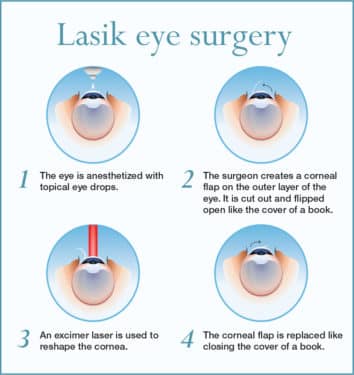How To Prepare For Your Cataract Surgical Treatment: Referrals From Veteran Surgeons
How To Prepare For Your Cataract Surgical Treatment: Referrals From Veteran Surgeons
Blog Article
Produced By-Cantu Albright
As you get ready for your cataract surgery, it's important to note the guidance of seasoned cosmetic surgeons who have directed numerous patients with this procedure. From understanding the needed pre-operative actions to ensuring you are physically prepared for the treatment, their insights can make a considerable distinction in your surgical journey. By making cataract surgery blurred vision to learn from their competence, you can approach your approaching cataract surgical procedure with self-confidence and a clear understanding of what to anticipate.
Pre-Operative Preparations
Before your cataract surgery, there are numerous crucial pre-operative preparations to make certain the procedure goes efficiently. Your medical professional will certainly encourage you to stop taking certain drugs, specifically blood thinners, prior to the surgery to reduce the threat of bleeding during the treatment. Additionally, you may need to go through a series of pre-operative tests, such as blood work and an ECG, to ensure you remain in healthiness for the surgical treatment.
On the day of the surgical procedure, you'll need to arrange for someone to drive you home as your vision may be blurred, and you should not drive instantly after the treatment.
Bear in mind not to eat or consume alcohol anything after twelve o'clock at night the night prior to your surgical procedure, unless your doctor instructs or else. It's critical to adhere to all pre-operative guidelines given by your medical care team to ensure a successful and safe cataract surgery experience.
Operation Information And Facts
Understanding the steps involved in cataract surgery can assist reduce any anxiety you may have concerning the treatment.
When you get to the surgical facility, you'll be prepped for the procedure by the medical personnel.
The doctor will certainly provide regional anesthetic to numb the eye location and ensure you fit throughout the procedure.
A little cut will be made in your eye to access the clouded lens.
Utilizing ultrasound technology, the cosmetic surgeon will separate the cataract and delicately suction it out.
As soon as the cataract is eliminated, a brand-new artificial lens will be implanted in its area.
This intraocular lens will help recover clearness to your vision.
https://www.natureworldnews.com/articles/42281/20191011/alternatives-to-refractive-surgery-procedures.htm takes about 15 to half an hour per eye.
After the procedure, you'll be monitored for a short period prior to being allowed to return home.
A lot of clients experience boosted vision almost quickly following cataract surgery.
Post-Operative Care
Upon completion of your cataract surgical treatment, it's critical to adhere to the recommended post-operative treatment guidelines to make certain a smooth healing procedure. Your specialist will certainly offer comprehensive assistance, which generally consists of making use of suggested eye goes down to avoid infection and lower swelling.
It's vital to avoid rubbing or putting pressure on your eyes and to wear a protective shield while resting to stop accidental contact. You might experience some moderate discomfort, itching, or level of sensitivity to light, however these symptoms usually subside within a couple of days.
It is essential to attend all follow-up appointments so your specialist can monitor your progression and attend to any type of concerns quickly. While https://docs.google.com/spreadsheets/d/1jyFXJTYnYCGpAXd6lW_QYROF4wPIcMxysPz1aU9W9Kw/edit#gid=1281400212 might resume light activities soon after surgery, strenuous exercise and lifting hefty things need to be prevented for a few weeks.
Final thought
To conclude, by following the pre-operative instructions, going through essential examinations, and preparing beforehand, you can help ensure an effective cataract surgical procedure experience. Count on the experience of your health care team and look after on your own both prior to and after the procedure. With appropriate prep work and adherence to guidelines, you can look forward to improved vision and a smoother healing process.
